|
I learned recently that Illinois passed Senate Bill 1882, called the "Safe Pets" Act which governs dogs and cats sold in pet stores. The new law does not prevent pet stores in the state from selling animals which are sourced from breeders. This comes as no surprise. Petland, the most prolific pet store chain in the country which sells dogs, already has eight retail locations in Illinois. The state cannot enact a law which would affect commerce for Petland because the stores are already open. The new law does state the following (among other provisions):
Many of these local laws go much further than the new Illinois law and I first blogged about them last year. These are locations where there are no existing pet stores like Petland selling dogs. The lack of those retail locations means that municipalities have the ability to enact pre-emptive laws to keep the stores from opening in the first place. The local ordinances I have advanced in some cities in my state require pet shops to source animals from shelters and rescue groups, prohibiting them from getting animals from breeders, brokers or from rescue groups which obtain animals from breeders or brokers for compensation (often referred to as the "rescue model.") As I have written about before, I obviously support these ordinances, resolutions, bills and laws which are, at their core, consumer protection laws. The Illinois law has limitations because Petland stores are already open there, but the language of the law makes it clear that it is also focused on consumer protection. And for good reasons. The Internet is replete with stories about people who bought a dog at a pet store, only to have that dog be terribly ill or have some genetic defect which results either in thousands of dollars of veterinary bills to treat/manage or which results in the death of the animal. The CDC has done multiple studies about pet store dogs spreading diseases to people, in some cases resulting in litigation. Then there is the less publicized scam in buying a pet from store: when the person who buys the animal does not understand they have leased the animal and it does not belong to them. I've heard a number of arguments against these laws, none of which are persuasive for me and some of which are just absurd. The laws take away personal choice. No. They do not. I admittedly promote adoption of animals from shelters and rescue groups. As much as I would like others to feel the same way, I cannot force them to share my values through magical thinking. I know plenty of people who get animals from breeders and cannot be persuaded to do otherwise. If someone wants to get a dog from a breeder, these laws do not prevent them from doing that. In places which have enacted laws about pet shops, that sale is just not facilitated in a retail setting. That does not mean the person cannot seek out a breeder of their choice who does not sell animals in retail stores. I read a blog on the website for the American Kennel Club which claims, "the purpose of these measures is get at not only retailers, but also breeders." We hear all the time that no "reputable" breeder would ever sold a dog or cat in a store, so people who have chosen to breed animals either for love of the breed or as a source of income are not affected by these laws. They are free to sell those animals directly to consumers just like they always have. These laws are only aimed at shutting down "puppy mills". It is true that the fewer pet stores in our country which sell dogs from large dog breeding operations (which I consider mills regardless of how well the dogs are cared for), the less profitable those operations will be. But to say the laws are only enacted to try to close those places loses sight of the primary purposes for the laws. Consumer protection. Perhaps a time will come when enough of these laws are enacted across the country when it will have a huge impact on those people currently breeding dogs for sale in those stores. The more stores which close or which switch to the rescue model, the fewer places there will be for the dogs to be sold. That time is a long way off. Millions of dogs are bred in the United States each year and this is a huge industry. The dogs are sold on the internet on websites which look polished and which leave the impression the parent dogs are well cared for. Dogs are also sold at auctions and in some cases, the dogs are being purchased by rescue groups which claim they are saving the dogs they buy from a fate worse than death while at the same time remaining willfully ignorant of the dog or dogs who will take the place of the dog they bought at auction using the money they paid. The laws prevent people of color from getting a dog of their choice. This is a new argument I first heard a few months ago and the explanations go something like this: 1) Many shelters and rescue groups making adopting an animal incredibly difficult (this is often true) which; 2) negatively impacts people of color; so 3) those people who have not been able to get a pet from a shelter or a rescue group need the ability to get a pet of their choice from a pet store as an alternative. I am the first to admit that there are shelters and rescue groups which make adopting an animal so difficult that people just give up. There have been a couple of recent articles about this in the New York Times and in The Cut. We had a panel discussion as part of the No Kill in Motion series (from No Kill Movement) recently in which we talked about this subject. Organizations like CARE - Companions and Animals for Reform and Equity are working hard to shine a light not only on the lack of diversity in shelter leadership, but also on how difficult some shelters make it for people to adopt because of their judgment of the worthiness of those people. The work of CARE is invaluable and it is long past the time when we should be having these discussions about inclusion and equity. But for every shelter and rescue which makes adoption difficult, there are many more which are doing all they can to place pets in need by making adoption exceedingly easy by using open adoption counseling and providing animals who are fully vetted and microchipped, sometimes with the adoption fee being incredibly low or waived. To say that people who have been turned away from a shelter or rescue should go to a pet store as their next option is not compatible with the argument that there are scores of reputable breeders across the county who do not sell pets in stores. I plan to take up this issue of how these laws affect people of color with James Evans of CARE to get his take on the argument. I have written many times about the subject of puppy mills and pet stores. I have often wondered how different our country would be had the UDSA not tried to help struggling farmers some 70 years ago and recommended breeding dogs as a way to make money. We would still have dog shows and people would still breed dogs, but would we see the production and sale of millions of dogs a year like we do now while at the same time destroying millions of dogs in places we call shelters? We will never know. I have also wondered how people would feel if we had never sold dogs or cats in stores from commercial breeding operations (many of which house dogs in conditions we would consider criminal) and we suddenly started doing that. Would people be outraged? I'd like to think so. I hope a day comes when we see an end to the sale of dogs and cats in stores and when people instead get companion animals from shelters, rescues or from responsible breeders as a direct purchase. Stores are great for a lot of things. Furniture. Clothing. Food. Not for pets. It's time for that to end. The sooner the better. (image of pet store puppy courtesy of Hector Parayuelos)
0 Comments
If you have a companion animal in your life of have ever been inside a pet supply store, you are probably familiar with the KONG brand. KONG makes a variety of dog and cat products from toys to toy stuffing to treats to puzzles to scratchers. The volume of products is vast and goes way beyond what you may have seen in stores. I didn't realize until recently that KONG doesn't advertise. KONG sells what I consider self-marketing products. The name is so well known that the products essentially sell themselves as a result of quality and a result of word of mouth advertising between satisfied customers and KONG Believers. KONG also has a program to help shelters called KONG Cares in which it distributes factory seconds to non-profit organizations at reduced prices. But there is a new program being rolled out by KONG which I'm blogging about today. I've known about it for months but was sworn to secrecy because the program was developed in my area as a result of some circumstances which caused a KONG employee to have a true "aha!" moment for the sake of animals. Some explanation is in order. In the summer of last year, people were still fostering and adopting a lot of animals during the height of the pandemic. Many animal shelters were closed. Some shelters were seeing people on an appointment-only basis and some still function that way (unfortunately). Progressive shelters were using changes to their operations to try to find ways to keep animals from entering the shelters at all by implementing social services programs to help people. The HASS - Human Animal Support Services - model of shelter was developed during the pandemic and is in pilot programs today. The basic idea behind HASS is to "keep people and pets together. We are bringing animal welfare organizations and community members together to engage in partnerships that support the bond of people and animals." As I thought about changes taking place nationally, I wondered how to help people more in my own area. I lead an advocacy group called No Kill Huntsville which was created to encourage the City of Huntsville to save more shelter animals. Part of our advocacy is interacting with the public to help modify their behavior. We decided to put together what we were calling a pet resources guide to help the public find organizations to help them find pet food, help pay for veterinary care, refer them to trainers or behaviorists, provide short-term foster placement, etc. A local television station did a story about our proposed resources guide. The plan never came together. We could not get enough organizations to provide us with input to create a guide and so the idea was disbanded, at least for now. But one good thing happened. When the story was on the news, Sandy Howle, an employee who works for KONG as a Training Ambassador, saw it and reached out to our group. She asked what she could do to help and that started a conversation with her about what we hoped to accomplish. Sandy was the person who had the "aha!" moment when she realized that KONG could do more to help not just animal shelters but shelter animals and the people who adopt them. Sandy developed an idea for a shelter enrichment and education program which she pitched the corporate folks. It should come as no surprise that they loved the idea. The test location was at the Greater Huntsville Humane Society in Alabama and there are now plans to take the program national to help shelters, shelter animals and animal caregivers across the country. The program includes educational classes for the shelter, volunteers, fosters and pet parents. KONG is also providing a swag bag for people that adopt. There are plans to hold KONG stuffing events, building sensory gardens and dig pits, holding donation drives. The list goes on. I've asked Sandy to tell us more about how the program began and about the plans for the future. I'd like to thank her for taking the time to share this wonderful news. Sandy, prior to us connecting, I knew about the KONG Cares program. Were there other programs KONG was doing to help shelter animals? We have always been involved in the shelters with our KONG Cares program and donations of product and raffle baskets. We also have our Pet Pros Shelter program that shelters or rescues can sign up for through our website at www.kongcompany.com. We help provide educational tools and marketing materials that shelters or rescue groups can use. Your group can also be entered into regular drawings for KONG Cares product, raffle baskets, and swag. You and I emailed back and forth a bit about the pilot program in Huntsville but I'm not sure I explained it correctly. Can you tell us what you did with the Greater Huntsville Humane Society to get things started? The first thing we did was training for the Animal Care Staff and anyone else who wanted to be involved. The first training was "KONG 101" where we discussed not only KONG, but the instincts of dogs, how that comes into the home and the "problem behaviors" it can create, and how KONG can help be a solution for these behaviors. We also did an enrichment training. We talked about why animals need enrichment and about different things the shelter or fosters could do in their everyday routines that would help provide enrichment to both the dogs and cats in the shelter or in foster homes. The shelter was able to take some of the ideas and run with them, for example, creating a "foster a plant" program to create a sensory garden for the animals. We also have a partnership with a distributor that is selling discounted enrichment kits to the shelters. These kits will go home with the newly adopted dog or cat. The hope is that the animal has enrichment in the shelter, and this can now be rolled into the home with this enrichment kit to help alleviate some of the stress on the new pet family and the new pet. We also have a partnership with Fig & Tyler Treats who, not only, have a bag of treats in the enrichment kit, but also have created a shelter give back program in which the shelter can earn free treats to use in their shelter. Now that the program you proposed will have a national roll-out, what can you tell us about what KONG plans to do to help other animal shelters? One of the things that we have learned is that both cats and dogs need enrichment in their lives. Enrichment leads to a happier healthier life. While we know there are many shelters and rescues that have great enrichment programs already, we also know there are many that do not. Our goal is to share this program and education so that someone can create an enrichment program in their shelter or we can help take their current program to the next level. We pair this enrichment program with the KONG Cares and Pet Pro Shelter Program and we are able to help reduce the stress in shelters and keep dogs and cats happy, which in turn helps them become more adoptable. If there is someone with an animal shelter who reads this blog and wants to make sure their shelter can participate in the program, is there something specific they should do to sign up? They can reach out to me via email or phone and I can give them more information about the program. I can be reached at 661-433-7687 or [email protected] Fun Facts: KONG's story began with a German Shepherd named Fritz, his owner, and a Volkswagen van transmission part one afternoon in 1970. KONG ran one commercial in the 1970s when the first KONG hit the market. The commercial ran one time only in the middle of the night because that was the affordable spot at the time. KONG rubber products are made in Golden, CO and KONG Consumables are made in the USA. KONG is distributed in over 80 countries and millions of dogs worldwide. (images courtesy of the Kong Company, Inc. and Snyder Building Construction)
|
AuthorI am an animal welfare advocate. My goal is to help people understand some basic issues related to companion animals in America. Awareness leads to education leads to action leads to change. Archives
July 2024
Categories
All
image courtesy of Terrah Johnson
|


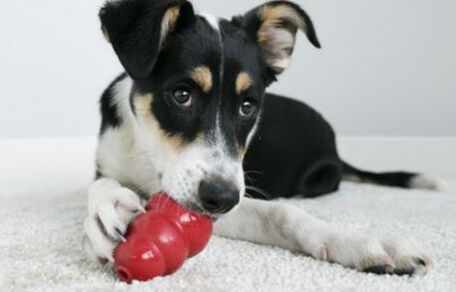
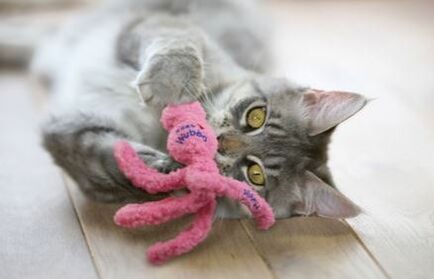
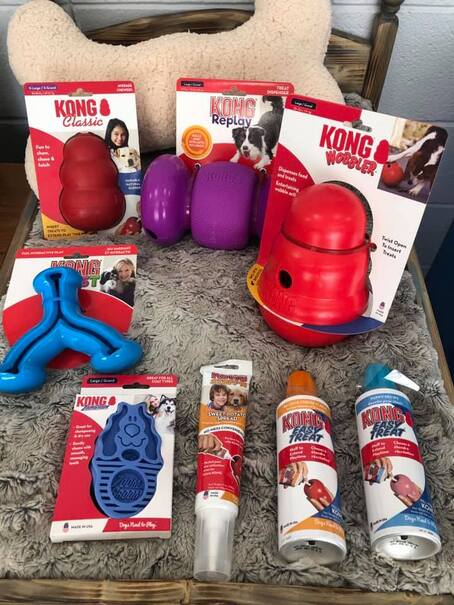
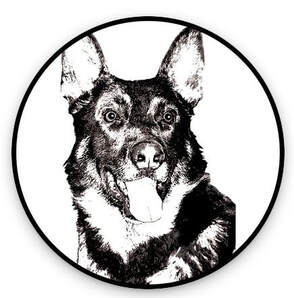
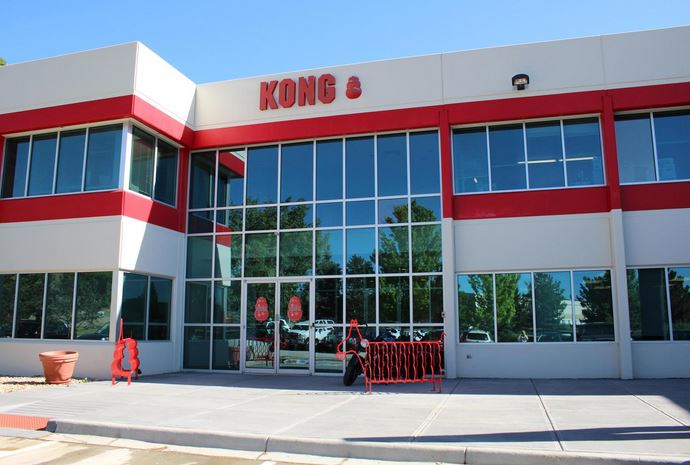
 RSS Feed
RSS Feed